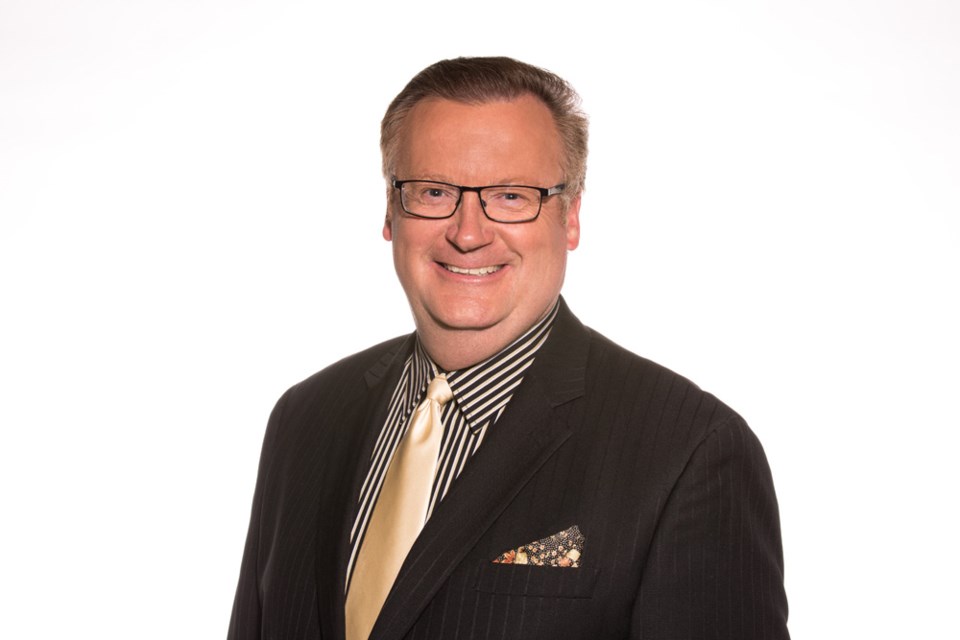While some may have been shocked by the swift defeat of long-time Conservative MP Lynne Yelich, it may have been more due to Kevin Waugh’s extensive pre-planning that gained him the Conservative nomination.
“In media, you have to be careful with what you do and say and I have been careful. It took me close to two years to get my team and campaign together, so I didn’t beat her in a month,” said Waugh. “It was quietly working behind the scenes … the last two weeks of the campaign, people were really engaged and knew why I was at their doorstep.”
Waugh has been a sports broadcaster with CTV News for the last 39 years. Yelich has held the bulk of the newly formed Saskatoon-Grasswood (previously the Blackstrap riding when Yelich held it) riding for the last 15 years. Suddenly, with the rearrangement of the ridings that divided urban from rural, the veteran sports broadcaster was able to wrest away that control.
It’s not often you see a media person cross over to the other side. Even so, it’s not Waugh’s first time stepping up to bat at a Conservative nomination. His first attempt came in 2003 when he ran provincially and lost. He was still grass green and unprepared for what entering the Conservative party meant, but he promised he wouldn’t lose again.
“Sometimes you have to lose before you can win … I learned a ton in 2003. I knew then that I had to get educated about governance and the process. I had to expand myself; I had to expand more than Kevin Waugh the sports guy,” he said. “And that’s what I did for the next 10 years. I had to find out how the community worked, find out its needs, quietly build a resume, and that’s what I did.”
Over the last decade, Waugh has become a Saskatoon public school division trustee and been elected to the Saskatchewan School Boards Association as an urban public representative. He’s been chair of the Saskatoon KidSport Breakfast and a board member for Tourism Saskatoon. He’s been involved in grassroots politics in the school divisions and his name has spread far and wide thanks to his media career.
“My resume had more to do with the community than it did with CTV. (It showed that) yeah, he’s in your living room, but he’s also in the community,” said Waugh. “The brochure was sensational. That was a defining bit of the campaign … a lot of people didn’t know I was into this or that … was it key? It was golden.”
More than just building up his resume, Waugh also had to learn what it meant to be a member of the party. It isn’t just one person representing the views of many; it’s a party of like-minded individuals presenting the public’s opinions on important issues. Waugh had to learn how to be part of a team.
“Sometimes in the media we can talk a lot of individual stuff, but you have to learn it’s the party that leads everything,” he said. “I had to learn that early, because everyone knew Kevin Waugh, but it was the party that had to be sold (on me). The party is first and foremost, even if you have more profile than others.”
Waugh said that it was a painful experience at times because he didn’t always agree with what the party thought. However, he learned that those disagreements were discussions that had to take place behind closed doors. Once they came out, they were on the “same team, delivering the same message.” Those were lessons that Waugh spent the last decade learning.
Despite his planning, Waugh kept quiet about his intentions until the last minute. On the upside, he took everyone by storm with a surprise attack that left Yelich reeling. The downside is he now has only a few months to put together a campaign that others have been preparing for over the last year.
“It’s been a hectic three months. It was a late nomination so I’m behind a bit because other parties have been banging on doors for the last year and a half,” said Waugh. “I have a lot of work to do in a short period of time. Next Monday (July 20) is three months until election day, which is 90 days to do stuff that takes two years to do. I’m going to have to hit a lot of doorsteps and be honest with people. This is who I am and this is what our party does.”
Waugh has been reluctant to say which issues he’s planning on focusing on. Instead, he said he wants to spend the next three months listening to what the people say and what their concerns are. He already realized infrastructure is an ongoing issue, but he’ll be leaving the rest open until he gets a response from the public.
“I want to hear what they say first before I open my mouth about what I think,” he said.
Fortunately, the new riding boundaries have separated the urban from the rural, which will help in defining each the concerns of each demographic. Currently, there are two areas in the riding that have unidentified people, such as new immigrants: Stonebridge and Rosewood. As such, Waugh said he’ll be focusing on personal identification.
“Now I want to hear from constituents and bring their views with me. I can be a strong voice. We have two ears and one mouth and sometimes politicians forget that,” he said. “I can be a good speaker, but it’s listening to the people that’s key. It’s hard in the media; we can be a spokesman for a lot of things,




